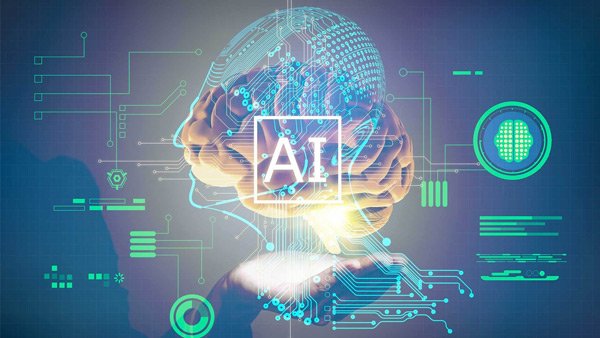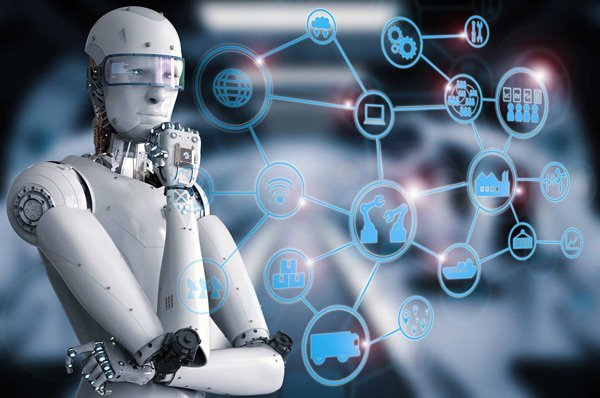10 Essential Skills to Negotiate Better: A Practical List
Summary:
Negotiation is more than a career skill; it’s an everyday advantage. Whether you’re closing a deal, leading a team, or asking for a raise, the ability to negotiate confidently defines your success. This blog lists 10 essential skills to negotiate better, blending real-world strategies such as BATNA, anchoring, and MESOs with the psychological and emotional intelligence tools every professional must master.
Introduction
We negotiate daily, sometimes without realizing it. From convincing your team to adopt a new idea to settling client budgets, negotiation shapes both personal and professional wins. Yet, despite its frequency, few master the art fully.
The importance of negotiation skills extends beyond boardrooms; it’s how leaders influence outcomes, build trust, and create win-win partnerships. Whether you’re an emerging professional or a seasoned manager, learning the skills to negotiate better can transform your confidence, communication, and career trajectory.
Let’s explore ten proven skills that make the difference between average and exceptional negotiators.
Mastering Negotiation Skills: Definitions, Benefits, and Examples
What Are Negotiation Skills?
Negotiation skills are the abilities that enable two or more parties to reach agreements, manage conflicts, or find mutual value. These involve communication, problem-solving, emotional control, and strategic thinking.
Benefits of Negotiation Skills
- Improved business relationships and client retention
- Better salaries and contract terms
- Enhanced leadership and collaboration within teams
- Reduced workplace conflict through proactive communication
By strengthening these competencies, professionals not only achieve better results but also cultivate credibility and influence across the phases of negotiation from preparation to closing.
10 Essential Skills to Negotiate Better
1. BATNA (Best Alternative to a Negotiated Agreement)
Every skilled negotiator enters the room with a backup plan. BATNA means knowing your strongest alternative if the negotiation fails. It provides leverage, confidence, and clarity during discussions.
Example: Before entering a salary negotiation, research industry pay ranges and have an alternative job offer or project opportunity ready. This ensures you negotiate from strength, not desperation.
Tip: The stronger your BATNA, the less likely you are to accept unfavourable terms.
2. Patience and Emotional Control
Impatience is a deal-breaker. Skilled negotiators know that silence, pause, and timing can often be more persuasive than words. If an offer doesn’t align with your goals, stay calm, listen, and let the other party speak more.
Why it matters: Emotional discipline prevents impulsive concessions and helps maintain long-term professional relationships.
3. Avoid Ranges & Be Specific
Quoting a range like “10–15%” gives your counterpart the upper hand they’ll always aim for the lower end. Instead, provide a precise figure based on your valuation or cost research.
Example: Say, “Our fee is ₹50,000 for this scope,” not “₹45,000–₹55,000.”
Precision conveys confidence and anchors the conversation at your chosen point.
4. Enroll in a Negotiation Skills Program
Real mastery requires practice, not just reading techniques. Enrolling in a negotiation program from reputed business schools like Welingkar Executive Education (WeSchool) gives professionals hands-on exposure through live simulations.
Experienced mentors demonstrate real-world negotiation psychology, covering elements such as BATNA, MESOs, anchoring, and nonverbal persuasion, helping you internalize the theory through practical experience.
5. Active Listening and Empathy
Negotiation isn’t only about what you say, it’s about what you hear. Active listening means focusing entirely on the speaker, clarifying doubts, and summarizing key points. It helps uncover hidden needs and potential win-win zones.
Example: When a client objects to pricing, instead of reacting defensively, ask: “Can you tell me what specific part of the cost concerns you?” This not only diffuses tension but opens collaborative pathways.
Mastering active listening enhances rapport, prevents misunderstandings, and builds trust a critical component in every negotiation stage.
6. Anchoring: Setting the First Reference Point
Anchoring refers to establishing an initial number or condition that frames the rest of the negotiation. Human psychology tends to gravitate around that first figure.
Example: When pitching a service, quote your ideal rate first rather than waiting for the client’s estimate. Research from Harvard shows that anchoring effectively can improve outcomes by up to 20%.
However, remember: an unreasonable anchor may harm credibility. Combine anchoring with solid justification and data to make it persuasive.
7. Understand the 4 Stages of the Negotiation Process
Every effective negotiation follows four broad stages:
- Preparation: Research objectives, alternatives, and counterpart motivations.
- Opening: Establish tone, credibility, and rapport.
- Bargaining: Exchange offers, concessions, and creative solutions.
- Closing: Confirm terms, summarize agreements, and solidify trust.
Awareness of these 4 stages of negotiation process ensures structure, preventing discussions from derailing into emotion or ambiguity. Professionals trained in structured frameworks outperform ad-hoc negotiators by 35%, according to Indeed’s workplace data.
8. MESOs (Multiple Equivalent Simultaneous Offers)
Offering MESOs means presenting several equivalent proposals at once rather than one rigid offer. This creates flexibility and signals cooperation.
Example: When negotiating a partnership, propose:
- Option A: Lower price, longer contract
- Option B: Premium price, shorter term
- Option C: Shared revenue model
This technique empowers both sides to explore value without confrontation. MESOs also uncover hidden preferences, expediting agreement and improving long-term satisfaction.
9. Self-Awareness and Stress Regulation
Can stress cause blind spots in negotiation? Definitely. Under pressure, negotiators experience tunnel vision and react emotionally. Self-awareness and stress regulation restore focus and improve reasoning.
How to build it:
- Take deep breaths before responding to tough remarks.
- Reframe conflict as collaboration.
- Practice mindfulness or short mental breaks between sessions.
Research suggests that stress management helps negotiators identify better creative solutions and maintain composure even during high-stakes discussions.
10. Confidence, Ethics, and Long-Term Thinking
Confidence without ethics leads to manipulation; ethics without confidence leads to compromise. Great negotiators balance both. They focus on sustainable agreements, not just short-term wins.
Why it matters: Trust fuels repeat deals and professional reputation. Ethical negotiation aligns with WeSchool’s philosophy, building future leaders who win through integrity, not intimidation.
Remember: the goal isn’t to “win” every argument, it’s to build relationships that compound value.
Benefits of Negotiation Skills
- Higher career growth: Employees with strong negotiation ability earn 10–20% more over time.
- Improved leadership: Negotiation is central to conflict resolution, persuasion, and transformational leadership.
- Better teamwork: Negotiators resolve issues early, preventing escalation.
- Confidence under pressure: Mastering these skills makes professionals more adaptable in dynamic business environments.
Why Negotiation Matters in 2025 and Beyond
In an AI-enabled workplace, human negotiation remains irreplaceable. Machines can process logic, but empathy, intuition, and persuasion are uniquely human.
The importance of negotiation will rise as hybrid teams, global collaboration, and digital communication reshape business culture. Those who learn how to influence across screens and time zones will define future leadership.
Negotiation isn’t just part of your job it’s your professional identity in motion.
Conclusion
Negotiation mastery is a continuous journey. Whether it’s defining your BATNA, setting anchors, or managing emotions under stress, each skill reinforces your confidence and credibility.
WeSchool’s Negotiation Skills Program empowers professionals to internalize these techniques through live practice, peer feedback, and expert guidance.
In today’s competitive environment, mastering the skills to negotiate better is not optional it’s essential. Your next breakthrough deal may not depend on chance, but on preparation and perspective.
FAQs
Q1. What are negotiation skills?
They’re interpersonal and strategic abilities used to reach agreements while maintaining relationships balancing persuasion, communication, and problem-solving.
Q2. How can I negotiate better at work?
Prepare thoroughly, define your goals, and listen actively. Use data and empathy to create mutual value rather than confrontation.
Q3. What is BATNA and why is it important?
It stands for Best Alternative to a Negotiated Agreement your backup plan if the deal doesn’t work out. A strong BATNA increases confidence.
Q4. How do you prepare for a negotiation?
Research market data, understand your counterpart’s interests, and outline possible trade-offs or MESOs to keep discussions flexible.
Q5. What is anchoring in negotiation?
Anchoring sets the initial reference point in a discussion. The first number or term influences the final outcome making preparation key.
Q6. How can I improve my active listening?
Focus entirely on the speaker, paraphrase their statements, and ask clarifying questions to show understanding and build rapport.
Q7. What are MESOs and when should I use them?
MESOs are Multiple Equivalent Simultaneous Offers, used when you want to propose several options to find mutual ground quickly.
Q8. How do I negotiate a higher salary?
Know your market value, quantify your impact, and approach discussions with data, not emotion. Always have a defined BATNA ready.
Q9. What negotiation tactics should I avoid?
Avoid aggression, deception, or over-promising. Sustainable negotiation relies on integrity and clarity.
Q10. Are negotiation skills learnable?
Yes. Through training, feedback, and practice, anyone can develop the mindset and structure needed to become a skilled negotiator.











